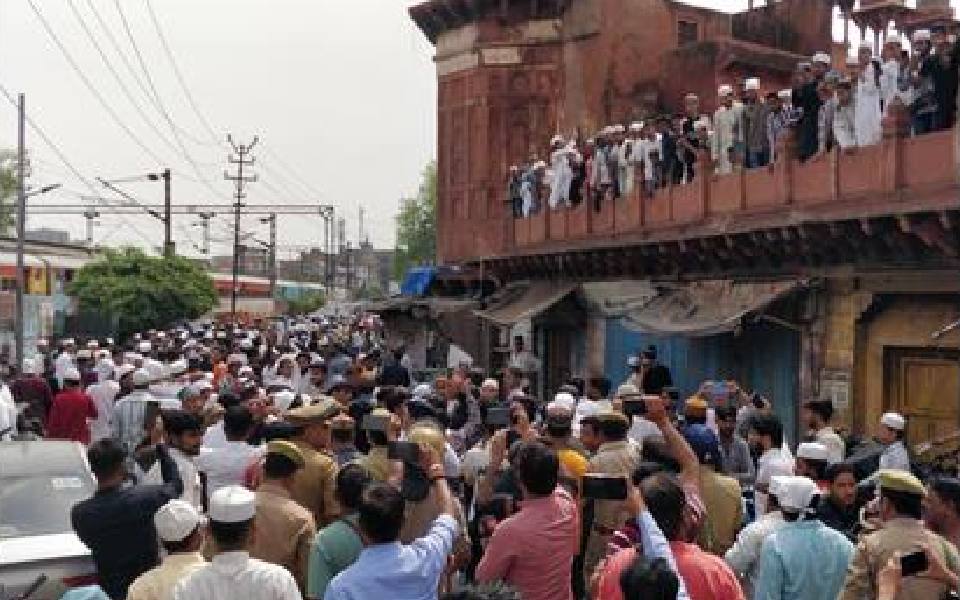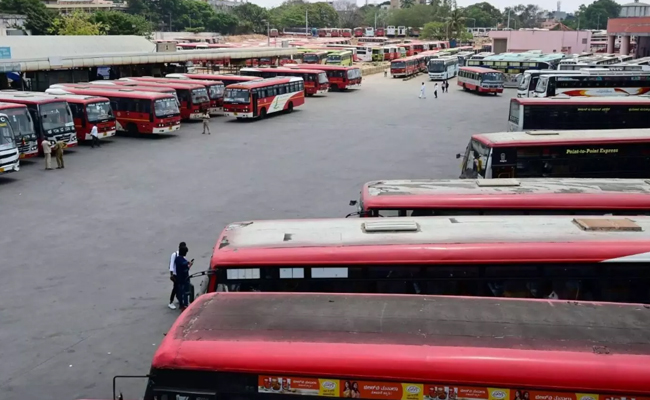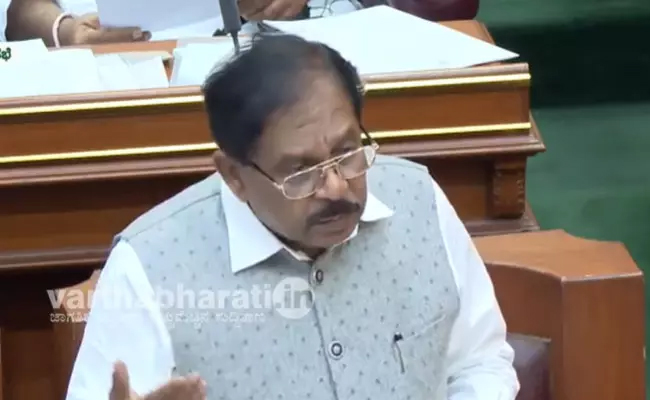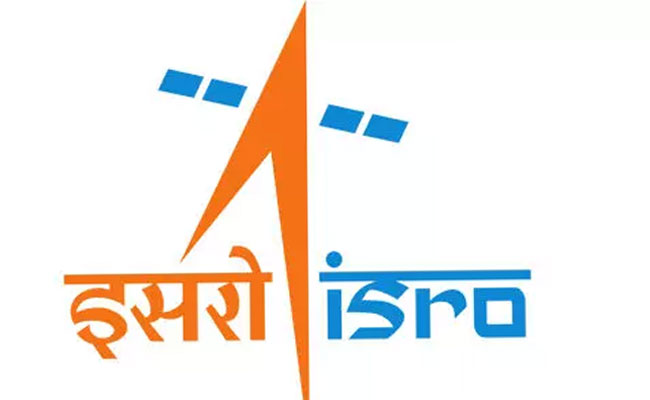Agra, Apr 13 (PTI): Around 60 people have been booked over a protest staged outside the Jama Masjid here following the recovery of animal flesh from the mosque premises, police said on Saturday.
The protest took place after Friday prayers, with demonstrators demanding strict action against the man who placed the flesh in the mosque premises.
Deputy Commissioner of Police (DCP) (City) Sonam Kumar said, "A case has been registered against the man who placed the piece of meat inside the mosque. Additionally, those who created disturbance outside the Jama Masjid have been booked. Around 60 people have been named in the FIR for their involvement in the protest."
The incident occurred late Thursday night when a man, Nazruddin, allegedly placed a packet containing animal flesh inside the Jama Masjid in the Mantola area. The matter came to light on Friday morning, triggering tension in the locality ahead of the weekly Friday prayers.
Police said CCTV footage showed the accused arriving at the mosque on a scooty and placing the packet inside the premises before leaving.
A team of more than 100 police personnel was deployed for investigation and area security. The recovered meat was seized and sent for forensic examination, they said.
The scooty used in the crime was traced to a local meat shop. Interrogation of the shopkeeper led to the arrest of Nazruddin, from Teela Nandram area, police added.
The accused was arrested on Friday and efforts and authorities are now probing whether he acted alone had accomplices, the DCP said.
Additional Police Commissioner Sanjeev Tyagi said that action would be taken under the National Security Act (NSA).
"We are looking into the intent behind the act and whether more people were involved," he added.
A group of people gathered outside the mosque, after Friday prayers, demanding capital punishment for the accused. The situation turned tense and police had to use mild force to disperse the crowd, he added.
Security was subsequently heightened in and around the Jama Masjid, with intensified police patrolling to prevent any further disturbance in the area.
Authorities have appealed to residents to maintain peace and refrain from spreading or acting on rumours.
Let the Truth be known. If you read VB and like VB, please be a VB Supporter and Help us deliver the Truth to one and all.
Bengaluru: The Karnataka State Road Transport Corporation will operate 1000 additional special services in view of the Christmas festival.
In addition to the existing schedule, the special services will run on 19.12.2025, 20.12.2025 and 24.12.2025. Further, special buses will be operated from various places of intra & Interstate places to Bengaluru on 26.12.2025 & 28.12.2025.
Special buses will be exclusively operated from Bengaluru Kempegowda Bus Station to Dharmastala, Kukkesubramanya, Shivamogga, Hassan, Mangaluru, Kundapura, Shringeri, Horanadu, Davangere, Hubbali, Dharwad, Belagavi, Vijayapura, Gokarna, Sirsi, Karwar, Raichur, Kalaburagi, Ballari, Koppala, Yadgir, Bidar, Tirupathi, Vijayawada, Hyderabad and other places.
ALSO READ: Bengaluru: Shopkeeper stabbed for refusing to serve free panipuri
Special buses from Mysuru Road Bus Station will be exclusively operated towards Mysuru, Hunsur, Piriyapatna, Virajpet, Kushalanagar, Madikeri.
The corporation has also announced a discount of 5 per cent on the fare if four or more passengers book tickets under a single reservation. A discount of 10 per cent will be extended on return journey tickets if onward and return tickets are booked simultaneously.
In addition to the above, special buses will be operated from all Taluk/District Bus Stands in the jurisdiction of KSRTC based on the traffic needs.





